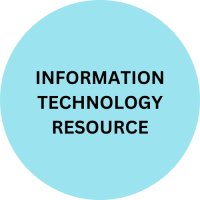Hurdles on the Road: Challenges in Autonomous Testing

Strong 8k brings an ultra-HD IPTV experience to your living room and your pocket.
The promise of autonomous vehicles (AVs) transforming our transportation landscape is undeniable. However, for these self-driving cars to become a reality, they must undergo rigorous testing and validation to ensure safety and reliability. This is where the concept of autonomous testing comes in – a crucial phase in the development of AV technology. Autonomous testing presents its own unique set of challenges for B2B tech companies in the information technology (IT) sector. In this B2B tech publication, we'll delve into the four main hurdles that autonomous testing throws up, and explore potential solutions to overcome them.
Challenge 1: The Intricacies of Initial Setup
Setting up an autonomous testing environment is no small feat. Unlike traditional vehicle testing, autonomous vehicles rely heavily on complex sensor suites, including LiDAR, radar, and cameras. These sensors generate a massive amount of data that needs to be collected, stored, and processed in real time. Here's a breakdown of the initial setup complexities:
Sensor Calibration and Synchronization: Autonomous vehicles rely on a symphony of sensors working in perfect harmony. Ensuring all sensors are precisely calibrated and synchronized is paramount. Even minor discrepancies in sensor data can lead to misinterpretations of the environment, potentially causing safety hazards.
Scenario Creation and Simulation Tools: Testing every possible scenario an AV might encounter on the road is physically impossible. B2B tech companies developing autonomous testing solutions address this by creating robust simulation tools. These tools allow engineers to virtually recreate a wide range of driving scenarios, from clear highways to dense fog and unexpected pedestrian crossings. However, the realism and effectiveness of these simulations depend heavily on the quality and detail of the virtual environments used.
Data Acquisition and Management Infrastructure: The sheer volume of data generated by autonomous vehicles during testing necessitates a robust data acquisition and management infrastructure. This infrastructure needs to be scalable, secure, and reliable to handle the constant stream of sensor data. Additionally, efficient data annotation processes are crucial for training machine learning algorithms that interpret sensor data and guide autonomous driving decisions.
Challenge 2: Decoding the Maze of Test Reporting
Autonomous testing generates a mountain of data, but extracting meaningful insights from this data is a challenge. Traditional test reporting methods, often used in manual vehicle testing, are inadequate for the complexities of autonomous systems. B2B tech companies need robust test reporting solutions that can:
Visually Represent Sensor Data: Test reports need to effectively visualize sensor data, such as LiDAR point clouds and camera feeds. This allows engineers to quickly identify anomalies, errors, and areas for improvement in the AV's perception system.
Correlate Data with Events: Effective test reports correlate sensor data with specific events that occur during testing. This could include sudden braking, lane changes, or near-miss situations. This correlation helps pinpoint the root cause of issues and allows engineers to understand how the AV's decision-making system handled various scenarios.
Generate Insights and Recommendations: Ideally, test reports should go beyond simply presenting data. Advanced B2B tech solutions can leverage machine learning to analyze test data and generate actionable insights. These insights can highlight areas for improvement in the AV's software algorithms, sensor performance, or overall system design.
Challenge 3: Maintaining Vigilance: The Monitoring Marathon
Monitoring autonomous vehicles during testing is crucial to ensure safety and gather valuable data. However, effectively monitoring multiple AVs simultaneously across diverse environments presents a significant challenge. Here's why:
Real-time Data Streaming and Visualization: B2B tech solutions need to facilitate real-time data streaming from multiple AVs undergoing testing. This allows engineers to monitor the performance of each vehicle remotely and intervene if necessary. Additionally, the data needs to be visualized clearly and concisely to avoid information overload for monitoring personnel.
Remote Control and Intervention Capabilities: The ability to remotely take control of an AV during testing is crucial for safety reasons. B2B tech solutions should provide robust remote control functionalities to allow engineers to override the AV's decision-making system if a potentially dangerous situation arises.
Edge Computing for Decentralized Processing: The vast amount of data generated by AVs during testing can strain traditional cloud-based processing systems. B2B tech companies are increasingly looking towards edge computing solutions. Edge computing allows for real-time data processing closer to the source (i.e., on the AV itself), reducing latency and improving the efficiency of monitoring operations.
Challenge 4: Building a Robust Test Automation Framework
The repetitive nature of many autonomous testing scenarios necessitates robust test automation frameworks. Here's why:
Regression Testing Efficiency: Regression testing ensures that new software updates or modifications don't introduce unintended bugs or regressions. Manually performing regression testing after every software update would be incredibly time-
Note: IndiBlogHub features both user-submitted and editorial content. We do not verify third-party contributions. Read our Disclaimer and Privacy Policyfor details.


